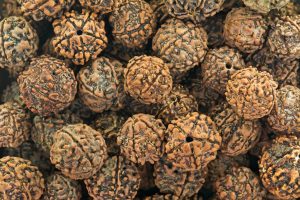Interest in eco-friendly materials has soared as industries seek sustainable alternatives to synthetic fillers in polymer composites. At the forefront of this green revolution, researchers from INTI International University, in collaboration with teams from Malaysia, Indonesia, and India, are pioneering using natural reinforcements to combat the environmental impact of traditional materials.
Professor Dr Tezara Cionita leads the charge from INTI International University’s Faculty of Engineering and Quantity Surveying (FEQS). Her team is exploring the potential of Elaeocarpus ganitrus, known as rudraksha seeds, as a natural filler for sustainable composite materials. These seeds, native to Southeast Asia, are already valued in Hinduism and Buddhism for their spiritual significance and use in prayer beads. Now, they are being recognised for their lightweight nature, low moisture absorption, high carbon content, and essential mineral elements, which make them ideal for eco-friendly composites.

Professor Dr Tezara Cionita and her team at INTI International University’s Faculty of Engineering and Quantity Surveying found that Rudraksha seed filler (RSF) enhances mechanical properties in polymer composites, promising sustainable material applications.
The research project, titled “Elaeocarpus ganitrus (rudraksha) seeds as a potential sustainable reinforcement for polymer matrix composites,” aims to evaluate the mechanical and thermal properties of composites enhanced with rudraksha seed filler (RSF).
Prof Tezara explained the methodology, stating, “RSF was incorporated at various concentrations and sizes using the hand lay-up technique. Our findings indicate that composites containing 10% of 100-mesh RSF exhibited superior tensile and flexural strengths, while those with 20% RSF demonstrated optimal impact resistance.”
She elaborated, “The composite featuring fine 100-mesh particles displayed exceptional tensile and flexural strengths, indicating robustness under tension and bending. Another composite exhibited remarkable impact resistance, absorbing energy without fracturing upon sudden impacts.
“Moreover, RSF-enhanced composites demonstrated enhanced thermal stability, showing higher tolerance to elevated temperatures before undergoing decomposition compared to pure epoxy resin,” she added.
Rudraksha seeds are emerging as promising fillers in polymer composites, aligning with sustainable development goals. They enhance mechanical properties and improve thermal stability, making them suitable for various industrial applications, such as the automotive, aerospace, and construction sectors.

Rudraksha seeds have the potential to serve as natural fillers in polymer composites, providing greener alternatives with improved mechanical properties, impact resistance, and thermal stability for a variety of industrial applications.
This natural alternative offers greener and stronger composites, enhancing epoxy resins’ strength, impact resistance, and thermal stability. Additionally, rudraksha seeds contribute to environmental sustainability by being biodegradable and emitting lower carbon emissions than synthetic fillers, presenting a viable solution for reducing the ecological footprint of composite materials in various industries.